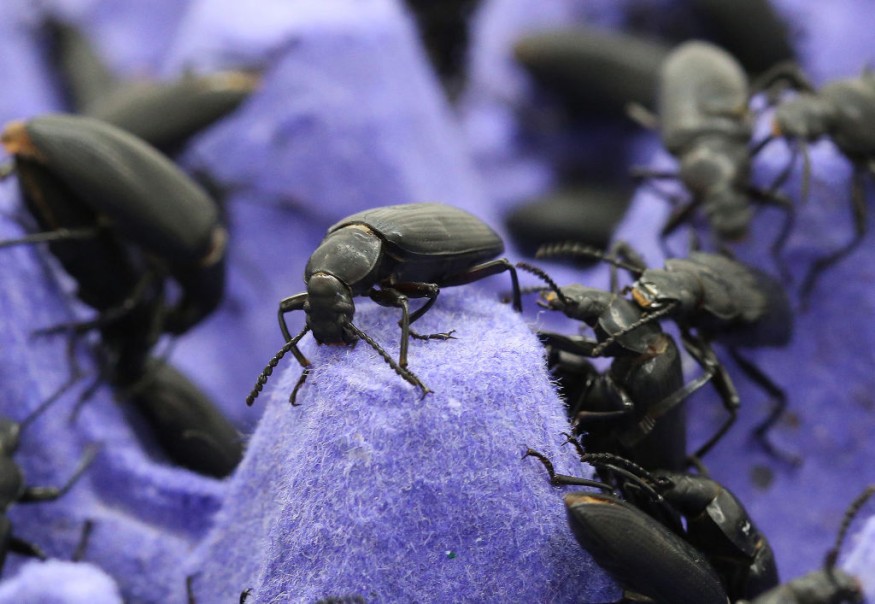
In the verdant rainforests of southwest England, a team of scientists from the University of Exeter has embarked on an extraordinary journey to uncover the secrets of one of the UK's most elusive and rarest insects-the blue ground beetle.
This groundbreaking study, supported by the Woodland Trust and other partners, is not just a tale of scientific inquiry but a beacon of hope for conservation efforts in the region.
Beetle Backpacks: A Technological Leap in Ecological Research
The blue ground beetle, a species confined to the temperate rainforest fragments of Dartmoor, has long been shrouded in mystery.
To shed light on their behavior and habitat use, researchers have equipped these beetles with miniature radio trackers, affectionately termed "beetle backpacks."
This innovative approach has allowed the team to record the nightly escapades of these six-legged athletes, revealing their remarkable ability to traverse distances that, to them, are the equivalent of several kilometers.
Dr. Nick Royle and Ph.D. researcher Brogan Pett lead the study, which has already yielded fascinating insights.
For instance, one male beetle, identified by his tag number R9, demonstrated exceptional vigor, covering over 25 meters in a single night.
These findings are crucial, as they highlight the beetles' preference for old-growth rainforest and their avoidance of habitat edges-information that is vital for developing effective conservation strategies.
Conservation Implications: Protecting the UK's Green Heritage
The implications of this research extend far beyond academic curiosity.
The data collected will inform the Woodland Trust and its allies on how to manage these precious rainforest patches, ensuring the survival of the blue ground beetle and the myriad of other species that call these habitats home.
With the beetles' active period limited to warm, humid evenings in late spring and early summer, the race is on to understand and protect these creatures before it's too late.
As the study progresses, the hope is that these beetles' multi-day 'adventures' will not only continue to fascinate but will also pave the way for a future where the UK's rarest rainforest beetles-and the enchanting forests they inhabit-thrive for generations to come
The Blue Ground Beetle
The blue ground beetle, Carabus intricatus, is a rare and striking species native to the UK's temperate rainforests, particularly in Dartmoor.
Recognizable by its vibrant blue wing cases, this beetle is one of the largest ground beetles in the UK, reaching up to 38mm in length.
It leads a mostly nocturnal life, emerging on warm, humid evenings in late spring and early summer to feed and mate.
Conservationists have taken a keen interest in this beetle due to its rarity and the fragmented nature of its habitat.
In an effort to understand and protect this species, researchers from the University of Exeter, in collaboration with the Woodland Trust, have initiated a pioneering study.
They've equipped the beetles with miniature radio trackers, or 'beetle backpacks,' to monitor their movements.
These trackers have revealed that the beetles can be quite active, with some individuals covering impressive distances equivalent to several kilometers in human terms.
The study, led by Dr. Nick Royle and Ph.D. researcher Brogan Pett, has provided valuable insights into the beetle's habitat preferences, such as old-growth rainforest and avoidance of habitat edges.
This information is crucial for developing conservation strategies to ensure the survival of the blue ground beetle and the health of the UK's unique rainforest ecosystems
© 2025 NatureWorldNews.com All rights reserved. Do not reproduce without permission.





